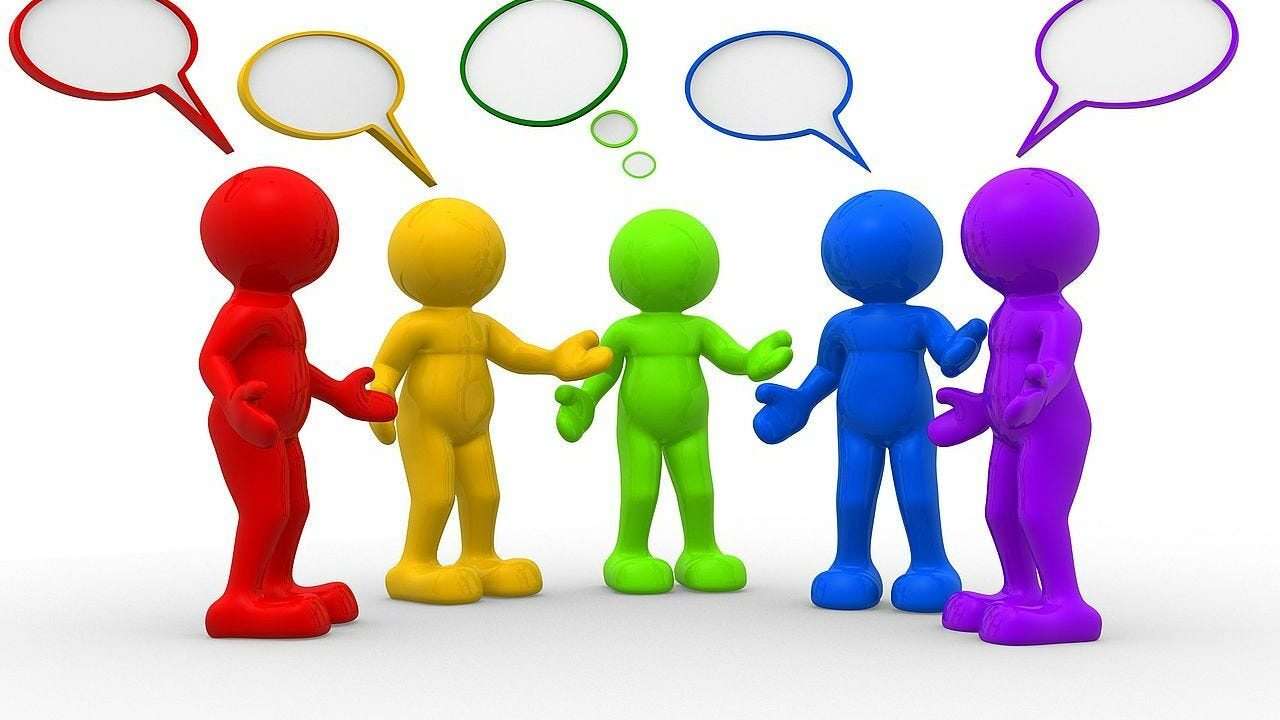
Communication is a cornerstone of human interaction, enabling us to connect, share ideas, and build meaningful relationships. In this comprehensive guide, we present valuable tips and techniques to enhance your communication skills. By mastering effective communication, you can navigate conversations with confidence, express yourself clearly, and foster stronger connections with others.
Active Listening and Empathy
Active listening and empathy are crucial elements of effective communication. Incorporate the following strategies to enhance your ability to listen and understand others:
- Engage in Active Listening:
- Actively listen to others by giving them your full attention. Avoid interrupting and focus on understanding their perspective rather than formulating a response. Use non-verbal cues like nodding and maintaining eye contact to demonstrate your attentiveness.
- Show Empathy:
- Empathy is the ability to understand and share the feelings of others. Put yourself in their shoes and seek to understand their emotions and experiences. Respond with compassion and validation, fostering a supportive and inclusive environment for open communication.
- Ask Thought-Provoking Questions:
- Encourage deeper conversations by asking open-ended questions that require more than a simple “yes” or “no” response. This allows individuals to share their thoughts and feelings more fully, promoting meaningful dialogue.
- Reflect and Summarize:
- Summarize the key points of a conversation to ensure accurate understanding. Reflecting back on what was said demonstrates your engagement and helps clarify any misunderstandings.
- Practice Mindful Communication:
- Be mindful of your own communication style, ensuring that your words, tone, and body language align with your intended message. Consider the impact your words may have on others and make adjustments as needed.
Non-Verbal Communication
Non-verbal cues play a significant role in communication. Pay attention to the following aspects of non-verbal communication to enhance your message:
- Body Language:
- Use positive body language to convey openness and receptiveness. Maintain an upright posture, face the person you are speaking with, and use appropriate hand gestures to support your message.
- Facial Expressions:
- Your facial expressions can communicate emotions and reinforce your spoken words. Be aware of your facial expressions to ensure they align with your intended message.
- Eye Contact:
- Maintain appropriate eye contact during conversations to demonstrate attentiveness and interest. However, be mindful of cultural differences, as eye contact norms may vary.
- Voice Tone and Inflection:
- Your voice tone and inflection can convey meaning and emotions. Practice speaking with clarity, varying your tone to match the context, and using appropriate emphasis to emphasize key points.
- Personal Space:
- Respect personal space boundaries and be mindful of cultural norms regarding proximity. Give others enough personal space to feel comfortable during conversations.
Written Communication
Effective written communication is essential in various professional and personal contexts. Consider the following tips to improve your written communication skills:
- Clear and Concise Messaging:
- Use clear and concise language to convey your message effectively. Avoid jargon, complex sentences, and unnecessary filler words. Write with precision and clarity to ensure your message is easily understood.
- Organize Your Thoughts:
- Structure your written communication in a logical manner, with a clear introduction, body, and conclusion. Use headings and subheadings to provide clarity and guide the reader through the content.
- Proofread and Edit:
- Take the time to proofread your written communication before sending or publishing it. Check for grammar and spelling errors, ensure coherence and coherence, and revise for clarity and conciseness.
- Tailor Your Writing to the Audience:
- Consider the needs and expectations of your audience when writing. Use appropriate language and tone that resonates with the intended readers. Adapt your style to suit the context, whether it's a formal email, a persuasive article, or a casual message.
- Use Visual Aids:
- Incorporate visual aids such as graphs, charts, or images when appropriate to enhance the understanding and impact of your written communication. Visual elements can make complex information more accessible and engaging.
FAQs (Frequently Asked Questions)
1. How can I improve my public speaking skills?
Improving public speaking skills requires practice and preparation. Consider joining a public speaking club, taking a course, or seeking opportunities to speak in front of others. Embrace feedback and continually refine your skills to gain confidence and deliver impactful presentations.
2. What can I do to overcome communication barriers in a multicultural team?
In a multicultural team, it's essential to foster a culture of understanding and inclusivity. Encourage open dialogue, active listening, and respect for diverse perspectives. Invest in cultural awareness training and provide resources to support effective communication among team members.
3. How can I improve my written communication in professional settings?
Improving written communication in professional settings involves honing your writing skills and adopting a professional tone. Practice writing concise and clear emails, reports, and documents. Seek feedback from colleagues or supervisors to refine your writing style and grammar.
4. How can I communicate assertively without being aggressive?
Assertive communication involves expressing your thoughts, needs, and boundaries while respecting the rights of others. Use “I” statements to express your perspective, listen actively, and avoid personal attacks or defensiveness. Practice assertiveness techniques to find the right balance between expressing yourself and fostering healthy relationships.
5. How can I navigate difficult conversations effectively?
Navigating difficult conversations requires sensitivity and tact. Prepare in advance by clarifying your objectives and choosing the right time and place for the conversation. Use active listening, empathy, and respectful language to encourage a constructive dialogue. Focus on finding solutions and common ground, aiming for a mutually beneficial outcome.
Conclusion: Enhancing Communication for Meaningful Connections
Effective communication is a powerful tool that enables us to connect with others, express ourselves authentically, and build strong relationships. By incorporating the strategies outlined in this guide, you can enhance your communication skills and foster meaningful connections in various personal and professional contexts. Remember, effective communication is a continuous journey of learning and refining your skills. Embrace these tips, practice them regularly, and enjoy the rewards of enhanced communication in your life.











